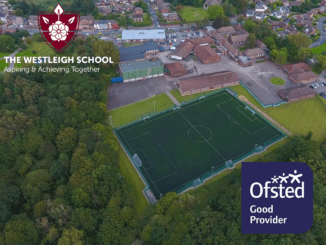
A guide to getting help and support from system leaders to improve your school
System leadership school-to-school support can be provided by:
- teaching school hubs (TSH);
- teaching schools (TS);
- national leaders of education (NLEs);
- national leaders of governance (NLGs);
- local leaders of education (LLEs);
- specialist leaders of education (SLEs).
There are now many opportunities for school leaders and governors to work with, and receive, support from their peers.
Teaching schools and teaching school hubs
The current teaching school programme ends on 31 August 2021 and will be replaced with teaching school hubs; these will be school-led centres of excellence for teacher and leadership training and development. Find out more about teaching school hubs.
Teaching schools have an important role to play in a school-led system and in-school improvement. Teaching schools are centres of excellence, prioritising:
- co-ordinating and delivering high-quality school-based initial teacher training (ITT);
- providing high-quality ,school-to-school, support to spread excellent practice, particularly to schools that need it most;
- providing evidence-based professional and leadership development for teachers and leaders across their network.
In addition, teaching schools can put you in touch with other system leaders, co-ordinating the supply and activity of national leaders of education, national leaders of governance, specialist leaders of education and local leaders of education. They support vulnerable schools and, where needed, help tackle underperformance and lead improvement in good schools. Support can be free, but there may be costs depending on what type of support you need. Any payments will be negotiated between you and the teaching school.
Teaching Schools Council
The Teaching Schools Council is made up of 17 CEOs of MATs, executive heads, headteachers or directors of teaching schools. All representatives have either a regional or national facing role. Teaching Schools Council representatives work with regional schools commissioners to help deliver school improvement on the ground, along with other agencies such as Ofsted, local authorities and dioceses. The Teaching Schools Council has a national, strategic, presence complemented by local partnerships that can draw in wider resources.
For more information regarding the work of the Teaching Schools Council, or to contact a representative, visit the Teaching Schools Council website.
National leaders of education
NLEs are outstanding headteachers who, together with the staff in their national support schools, use their skills and experience to support schools in challenging circumstances. In addition to leading their own schools, NLEs work to increase the leadership capacity of other schools to help raise standards.
The primary funded function of NLEs is to deliver the school improvement support offer on behalf of the Department for Education (DfE). NLEs deliver support to underperforming schools, helping them to identify and address areas in need of improvement, including:
- leadership;
- governance;
- financial health.
National leaders of governance
NLGs are highly effective chairs of governors who use their skills and experience to provide coaching and mentoring support to other chairs of governors to improve school and academy performance. They fulfil a valuable role in helping support governance in schools to provide confident and strong strategic leadership. As part of the wider system leadership review, the DfE is considering how we can ensure the quality of system leadership remains as high as possible.
The government published the recommendations of the advisory group for a reformed NLG programme; from June, they will be working with the National Governance Association to begin to implement those recommendations; NLGs recruited through the reformed model will start providing targeted support in October 2021.
You can still access support through designated NLGs until July 2021 when the current model comes to a close. You should contact an NLG if you want to improve the leadership and performance of your school’s governing body – for example:
- mentoring of the chair/members of the school’s governing body;
- conducting an external review of governance (only NLGs who have completed the DfE training);
- chairing or membership of an interim executive board;
- chairing or leadership role of the governing body of school/multi-academy trust where the school has been identified as needing urgent additional governance capacity.
Specialist leaders of education
SLEs are experienced middle or senior leaders with a specialism (for example, mathematics, ITT or behaviour). The DfE no longer designates SLEs, though teaching schools have the freedom to recruit and designate school leaders in this role.
While other roles – for example, advanced skills teachers – focus on developing classroom expertise, the SLE role is about developing other leaders so that they have the skills to lead their own teams and improve practice in their own schools.
You should contact an SLE if you want to improve the leadership in a specific subject or specialist area in your school. SLEs can provide one-to-one or group support; their work could involve a variety of activities, such as:
- data analysis;
- coaching;
- facilitating and training;
- joint action planning.
You can find system leaders in your area in the school-to-school support directory which lists teaching schools, NLEs and NLGs. LLEs and SLEs can be contacted through teaching schools.



Be the first to comment